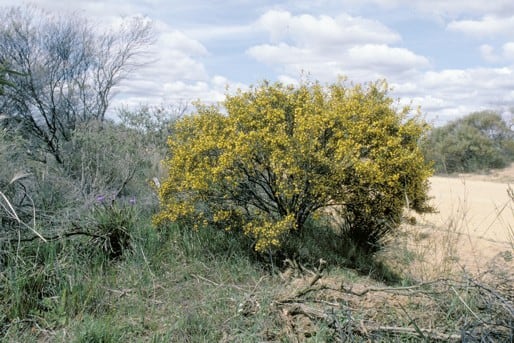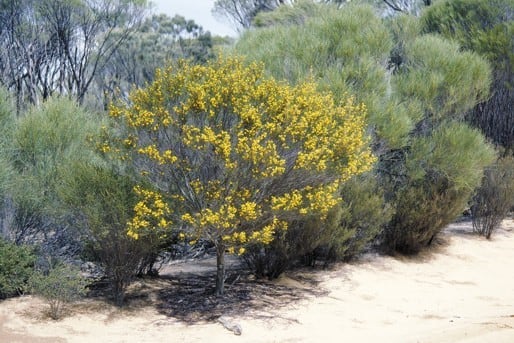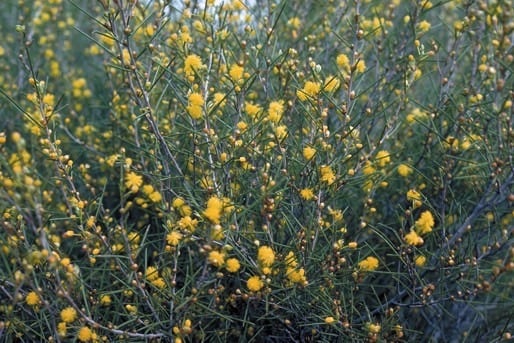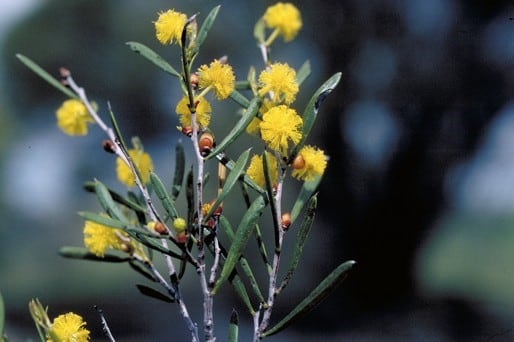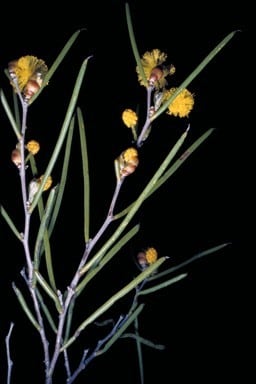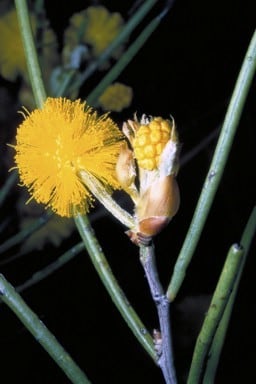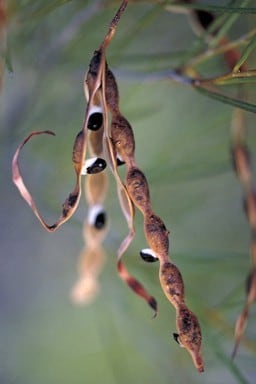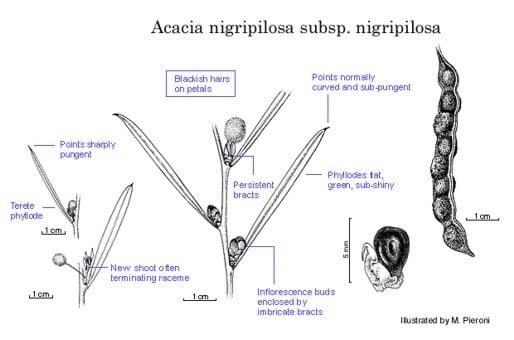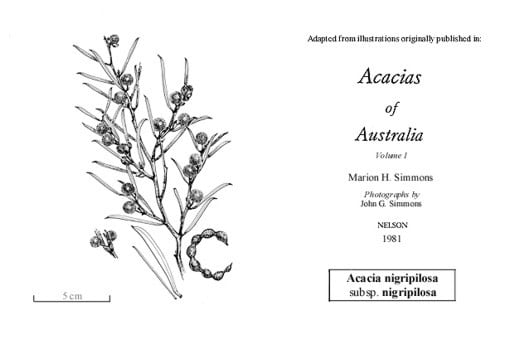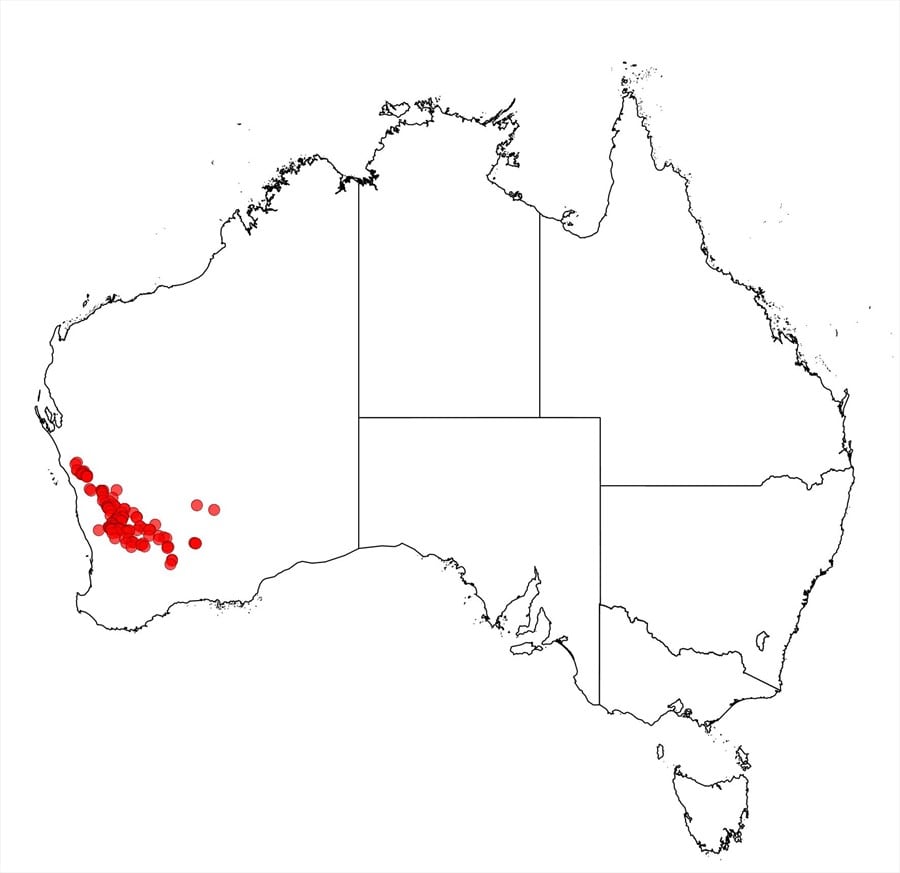Acacia nigripilosa Maiden subsp. nigripilosa
WATTLE
Acacias of Australia
Family
Fabaceae
Distribution
South-western W.A., see species distribution above.
Description
Phyllodes variable, flat to terete, 2–7 cm long, (0.5–) 1–5 mm wide, l:w = 7–50, somewhat shiny, green, normally gradually narrowed to a straight or delicately curved pungent or subpungent point.
Habitat
Commonly grows in yellow or light brown sand in closed- or open-scrub.
Specimens
W.A.: 34.5 km NE of Wubin on Payne’s Find road, R.Coveny 7876 & B.R.Maslin (CANB n.v., K n.v., NSW, PERTH); 30 km E of Morawa on road through Koolanooka Hills, R.J.Cumming 1916 (PERTH); 7 km S of Mullewa on road to Mingenew, B.R.Maslin 5080 (CANB, K, MEL, PERTH); 19 km SSW of Queen Victoria Rock, c. 63 km SW of Coolgardie, K.Newbey 6098 (PERTH).
Notes
Very variable and may comprise more than one taxon. Typical subsp. nigripilosa occurs from Ballidu E to Mt Holland and near Queen Victoria Rock. Its phyllodes are flat (rhombic in section when very narrow) with a prominent midrib and a delicately curved, subpungent acumen, the new shoots are glabrous and the peduncles normally 4–10 mm long. Variants with ±terete phyllodes occur between Wubin and Perenjori (e.g. R.Coveny 7876 & B.R.Maslin). Their phyllodes have straight to curved, often very pungent points and often obscure midribs and the new shoots are glabrous or tomentose. On some specimens from near Wongan Hills and in the Mullewa-Yuna area the phyllodes are broad (to 5 mm wide) and have straight, very pungent points. Plants from the latter area may also have peduncles 10–20 mm long and occasionally hairy new shoots (e.g. B.R.Maslin 5080). Plants from the Koolanooka Hills often have atypically ±patent phyllodes (e.g. R.J.Cumming 1916).
FOA Reference
Data derived from Flora of Australia Volumes 11A (2001), 11B (2001) and 12 (1998), products of ABRS, ©Commonwealth of Australia
Author
B.R.Maslin
Minor edits by J.Rogers
This identification key and fact sheets are available as a mobile application:
URL: https://apps.lucidcentral.org/wattle/
© Copyright 2018. All rights reserved.
